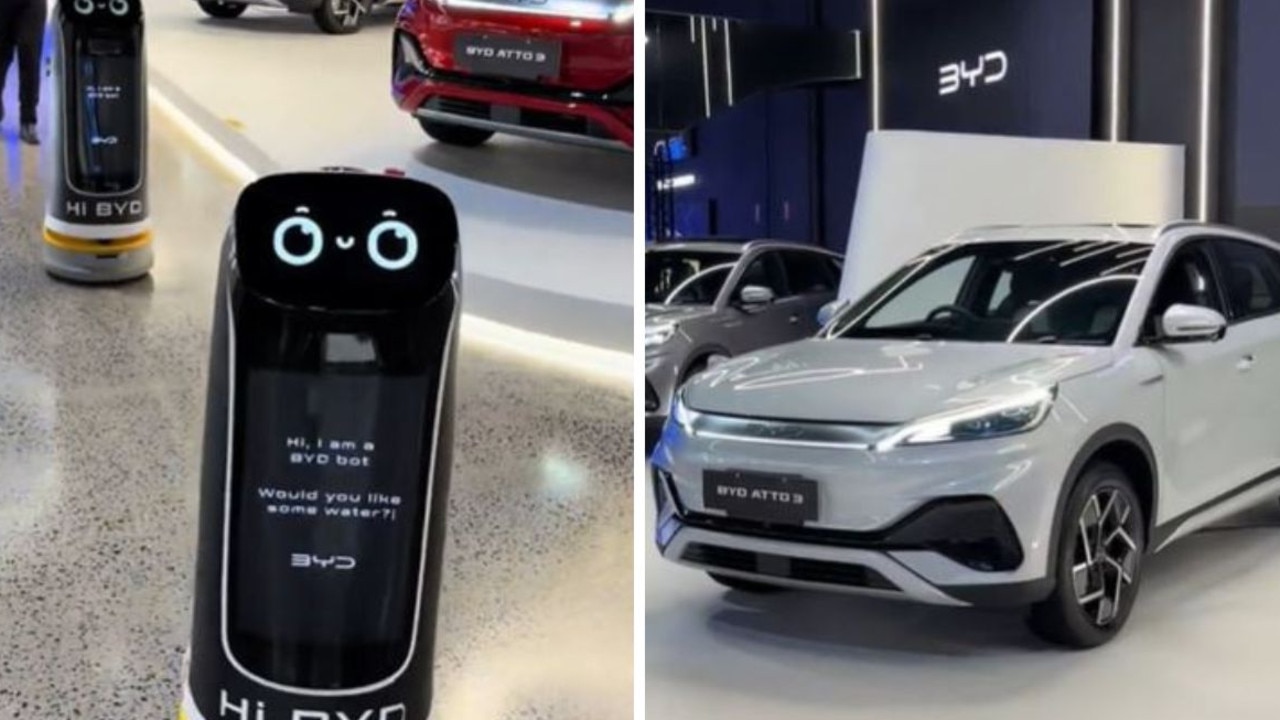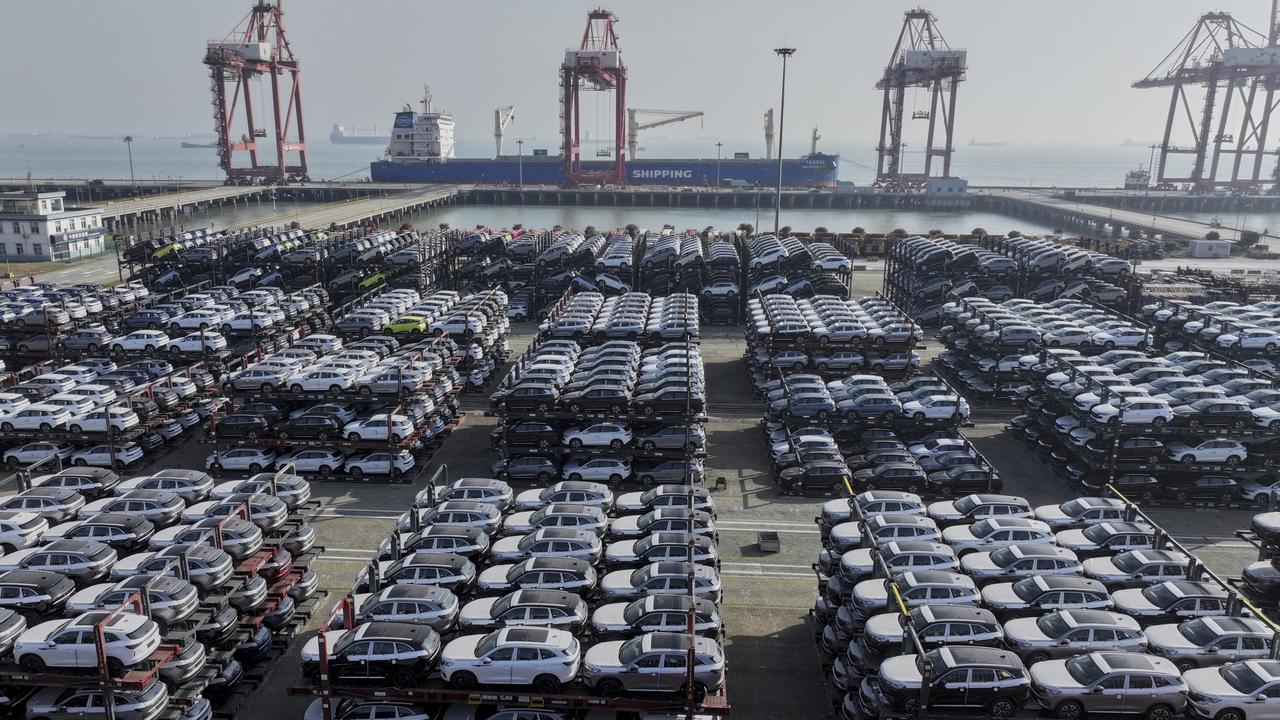April new-car sales: Toyota struggles, Tesla surges
Toyota’s popular 4WD ute has ruled the roost in the Australian new-car market for years, but a locally designed and engineered challenger is threatening to take its crown.
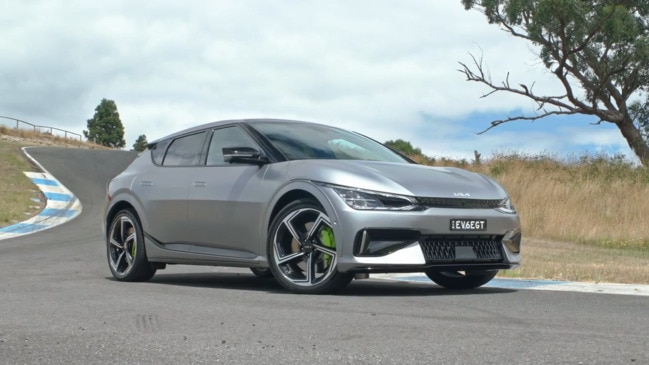
Motoring News
Don't miss out on the headlines from Motoring News. Followed categories will be added to My News.
Australian new-car buyers’ tastes are shifting dramatically if the April sales results are anything to go by.
Toyota’s HiLux has been dethroned by the Ford Ranger as the top-selling car in the country, while electric cars and Chinese brands are booming.
Here are the latest trends in the new-car market..

HiLux dethroned
Oh what a sinking feeling.
The Toyota HiLux ute, our best selling vehicle for the past seven years, is now playing second fiddle to the new locally designed and engineered Ford Ranger.
In the first four months of the year Ranger sales are up 30 per cent, while HiLux sales are down 16 per cent.
Semiconductor shortages and shipping delays have wreaked havoc on Toyota, which has dominated the new-car market for almost two decades, accounting for one out of every five new cars sold.
Sales are down by 30 per cent, with sales of the popular RAV4 dropping by 40 per cent.
The brand blames the slump on “supply constraints” and predicts it will bounce back as supply improves later this year.
In a statement, the brand said the latest sales figures were the result of “supply constraints”. “We are expecting the situation to improve, particularly in the second half of the year. We continue to work closely with our global production teams and our local dealers to secure and deliver as many cars as possible, as quickly as possible.
“Demand for Toyota vehicles remains strong and our order bank is very healthy. For the full year, we are expecting to deliver more than 200,000 vehicles for the 19th time in the past 20 years,” the statement said.

Electric vehicles surge
Government incentives and tax breaks for electric vehicles have had a dramatic effect on demand in the past few months.
Electric vehicles made up 8 per cent of the new-car market in April, compared with just 1 per cent this time last year.
Tesla’s Model Y was the fourth-best selling SUV car in the country, while the brand’s Model 3 was the top-selling sedan. It now outsells established brands such as Honda, Subaru and Volkswagen.
Federal Chamber of Automotive Industries chief executive Tony Weber says five of the top ten selling vehicles last month had some form of electrification.
“Electric vehicles accounted for 8 per cent of sales in April. This is well up from 1.1 per
cent compared with April 2022. If you take all forms of electrification, that number has
increased from 9.5 per cent to 15.4 per cent, and we know that this number would
have been larger had the industry not faced global supply challenges,” he says.
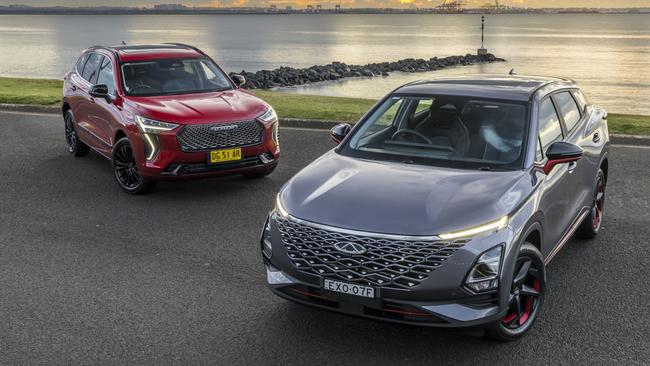
Chinese cars on the rise
No-one could have predicted the surge in sales of Chinese cars a couple of years ago.
The Chinese and Australian governments were at each others’ throats over trade sanctions and Covid allegations.
But Aussie car buyers didn’t seem to mind one bit.
Sales of vehicles sourced from China increased by 68.5 per cent last month, firmly establishing China as our third favourite car importer behind Japan and Thailand, which makes most of our one-tonne utes. Korea has been relegated to fourth.
There are a couple of reasons for the trend. Mainstream car makers have jacked up their prices and removed cheaper models from their line ups, making Chinese cars the logical option for buyers on a budget.
China also seems to have fared much better out of the semiconductor shortage. While Japanese brands struggle to supply enough cars to meet demand, Chinese makers have plenty of stock.
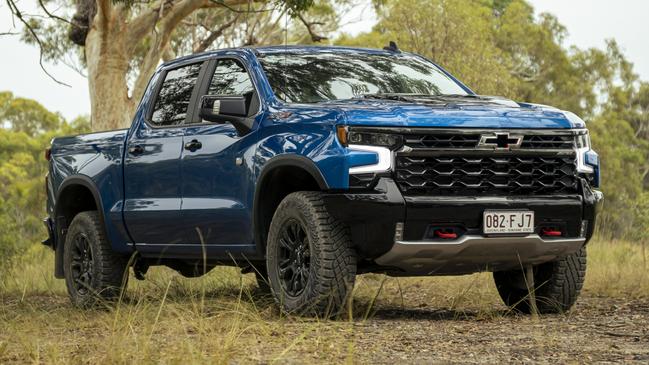
American pick-up trucks popular
They’re overpriced, oversized and over here.
After years at poking fun at the Yanks’ love of pick-up trucks, Aussies have embraced them.
Cashed up horse lovers, caravanners and boaties have lined up for a slice of American Pie, paying in excess of six figures for trucks such as the RAM and Chevy Silverado.
So much so that the official stats keeper, VFACTs, has had to add an extra category to its sales charts.
Sales of pick-ups costing more than $100,000 are up by more than 50 per cent this year.
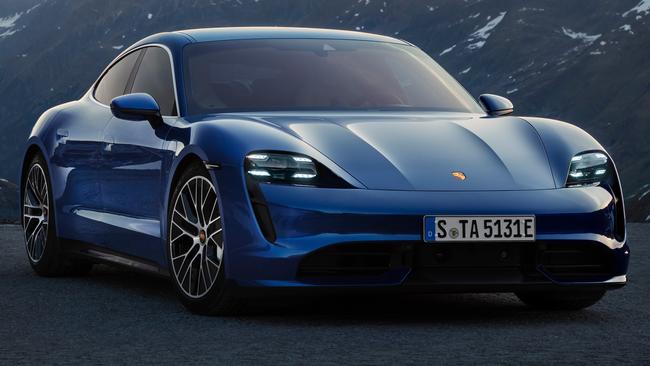
Luxury brands feel the pinch
Is the jetset feeling the cost of living crunch? Are interest rate increases dampening rich people’s appetite for the good things in life?
Perhaps, if luxury car sales are anything to go by.
Sales of Bentleys, Ferraris, Lamborghinis and Porsches have dipped this year, while luxury car leader Mercedes-Benz is also feeling the pinch.
More affordable luxury brands are faring better. Audi and Lexus are enjoying sales surges, as is Volvo and its electric-only offshoot Polestar.
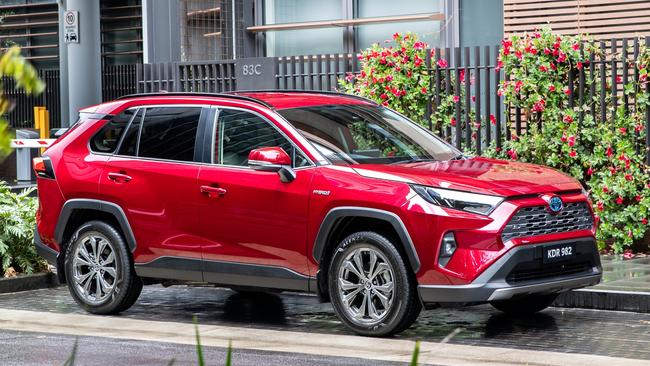
Hybrids on the nose?
Once the ultimate virtue-signalling machine, hybrids are now being frowned upon by environmentalists.
Toyota, which led the hybrid revolution, has been accused of dragging the chain on the shift to fully electric vehicles and pushing hybrid technology to recoup its not-insignificant investment in the technology.
Despite the introduction of new hybrid models by Hyundai, Kia and Nissan, hybrids have been outsold by EVs in the first four months of the year.
It’s not what it seems, though. The waiting list for a Toyota RAV4 hybrid is about two years – the brand just can’t deliver them quickly enough.
Originally published as April new-car sales: Toyota struggles, Tesla surges


